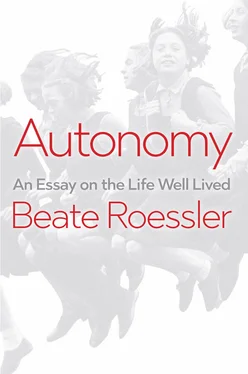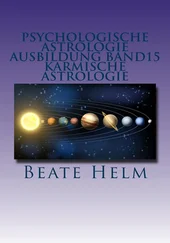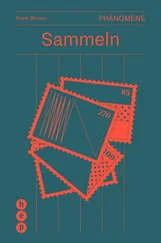Velleman’s critique draws on Freud’s analysis of the case of Mr R, 23torn between love and hate for his father, whose problem, in Velleman’s view, was not ambivalence as such so much as his response to it, his way of coping with it. His suppression of his hatred, the rejection that for Frankfurt is supposed to be the cure, was precisely the source of his pathology; he should have instead accepted his feelings of hate. What he should have done was “to accept himself as ambivalent toward his father.” 24Accepting ambivalence would at the same time resolve the conflict, for when a patient conceives of her ambivalence as such, she can accept it and then act according to the reasons she considers to be better or authentic.
Filial ambivalence toward one’s parents, Velleman argues, is by no means the exception but the rule. For this reason alone, it is unreasonable to assume that most of us lack autonomy because of such ambivalence. And this is also why coping with ambivalent feelings and attitudes precisely by accepting them is part of our everyday psychology. Finally, this does not mean that it is easy to live with and accept such ambivalences – on the contrary, it can be “difficult, daunting, even terrifying.” 25Velleman, however, sees the idea of strict wholeheartedness as a kind of “disease,” or at least a false perception on the part of our (more or less) healthy self. We may perhaps hold such an idea of wholeheartedness as an ideal, but reality repeatedly contradicts our experiences.
Velleman’s critique of Frankfurt’s solution to the problem of ambivalence surely points at least in the right direction. Ambivalences are part of our psychological constitution, part of the structure of our desires and will. But what does it mean to be able or to have to “accept” ambivalences? Velleman remains imprecise on this point, but it is an important question, as we are able to act and a fortiori act autonomously only when we are sufficiently aware of what we want and can establish what we want with sufficient certainty.
If we once again consider the conflicts that I described above as existential conflicts of prioritization, then we can see that here, too, one can make decisions and put things in order, but it is not plausible to say that one simply “cuts off” one possible action or “radically” separates oneself from it. The poet may spend her entire life regretting that she could not also become a farmer, but this does not necessarily mean she is not autonomous. The ways in which we differentiate between those reasons or motivations that we do not follow, with which we do not identify, and those on the basis of which we act, encompass a broader spectrum than either Frankfurt is able to allow or Velleman describes.
What then does it mean to accept ambivalences? Bernard Williams offers one suggestion for how to describe such acceptance in a way that is both phenomenologically adequate and best for ethics – including the ethics of autonomy. His distinction between contradictions and conflicts of beliefs and those of desires is a first point of interest here: “If I discover that two of my beliefs conflict, at least one of them, by that very fact, will tend to be weakened; but the discovery that two desires conflict has no tendency, in itself, to weaken either of them.” 26
Why is this so? Because, according to Williams, the relationship between belief and truth is different from that between a desire and its satisfaction. If I decide that one of two beliefs is not true, the false belief
cannot substantially survive this point, because to decide that a belief is untrue is to abandon, i.e. no longer to have, that belief. [. . .] A rejected desire, however, can, if not survive the point of decision, at least reappear on the other side of it [in] one or another guise. It may reappear, for instance, [. . .] in the form of a regret for what was missed. 27
Conflicts of desire along with moral conflicts moreover “can readily have the character of a struggle, whereas conflicts of beliefs scarcely can.” 28Two conflicting beliefs, Williams argues, threaten our rationality, that is the consistency of what we hold to be true; two conflicting desires do not, at least not necessarily.
The persistence of a conflicting desire is expressed, in Williams’s terminology, as regret . In the case of conflicts of desire or conflicts between moral demands, this regret can linger on even after a decision has been made. This is particularly clear in moral conflicts: Agamemnon must and can make a decision, even “with certainty.” But, according to Williams, this does not mean that he does not lie awake at night. The reasons to decide in favor of his daughter and against his army persist, and the only way to resolve the conflict is to regret that both possible actions could not be pursued. Agamemnon “lies awake, not because of a doubt, but because of a certainty.” 29Now the regret a person feels after making a decision in a moral conflict is different from the regret experienced in ethical conflicts of desire (such as the case of the poet and the farmer). But it is still regret, the knowledge that the reasons in favor of the rejected desire or action have not simply lost their persuasiveness or validity, have not simply disappeared. 30
Williams thus allows us to give a positive meaning to Velleman’s “acceptance” of ambivalences. The reasons we have to decide in favor of one side can endure as reasons for us, but they simply are not strong or convincing enough to be effective. However, these reasons – or desires – can continue to be understood as part of our values and evaluations, as aspects of our self. If purist theories hope to eliminate ambivalence entirely, they precisely cannot explain what it means not to be completely one with oneself in the wake of an ambivalent decision. I want to adopt Williams’s idea that a regret remains after a person has turned away from certain possible actions – and here we can speak not only of desires but also of beliefs and, above all, reasons. As Williams writes, we can only explain what reasonably coping with ambivalences might look like, and what it means that we do not feel any “satisfaction” after deciding a conflict of ambivalence, if we do not entirely remove the “should” from the scene. 31
How large can the distance be between the motivations that we did not follow and those that were able to motivate our actual action? How much contradiction, how many lingering ambivalences, can a person stand? Here we can make use of a helpful insight from Richard Wollheim, who argues that desires can exist alongside each other, even if we cannot and do not want to satisfy all of them. The same could be said of the reasons that motivate our actions. Desires can rationally coexist when the conflict between them does not make it impossible to act, when it is not paralyzing. Wollheim offers a criterion for how conflictual this coexistence may be: “The index of this limit is anxiety.” 32Hence it can only bring as much friction with it as we are yet capable of tolerating. The coexistence of desires has personal and affective connotations, a subjective index. If our conflicting desires – and the reasons that persist if we are unable to follow them – become oppressive and make us anxious, then our anxiety may translate into the kind of indecisiveness or vacillation that makes acting impossible. It must be possible to act with certainty, however, even if we can also remain aware – regretfully, lamentingly – of our ambivalence. This limit of irrationality still allows a broad spectrum of possibilities for dealing rationally with conflicting desires and conflicting reasons. 33Reasonably coping with ambivalences conforms to a reasonable interpretation of the ambivalent self . I will demonstrate this below, before finally discussing the kinds of conflicts of ambivalence that I described above as cultural conflicts or conflicts of identity.
Читать дальше












